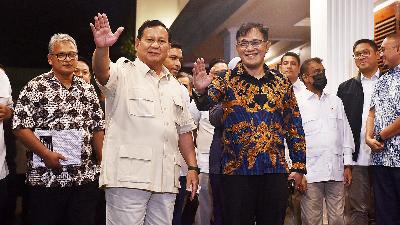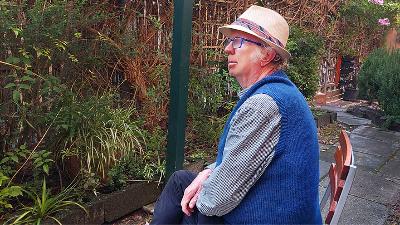Stop Intimidation Against Activists
Acts of intimidation are being aimed at people critical of the government. Even art events are not exempt from censorship.
Tempo
January 1, 2024

ACTS of intimidation towards civil society have increased as the general election approaches. Students and activists critical towards the government are being suppressed. Even worse, the government is maintaining a pretense that nothing is amiss. President Joko Widodo has claimed that his administration does not obstruct freedom of expression.
Victims of intimidation include the chair of the Gadjah Mada University Student Executive Body (BEM UGM), Gielbran Muhammad Noor. After his organization conducted a podium for free speech and hung up a giant ballyhoo stating that “Jokowi is Our Most Embarrassing Alumnus” at the UGM Roundabout in Yogyakarta on December 8, 2023, he has been the target of a series of attacks. Several men suspected of being intelligence officers have appeared on campus and snoop around for information on Gielbran. The student and his family’s private affairs are being exposed on social media.
Gielbran is the latest in a long list of ordinary civilians currently being repressed. The Commission for Missing Persons and Victims of Violence (Kontras) noted that 107 incidents of attack and threat against civilians were conducted between December 2022 to November 2023. The largest number of incidents were forced disbanding of a total of 41 gatherings, 37 cases of intimidation, and 35 incidents of unilateral arrest. To note, several violations could take place in a single incident curbing civil liberty. In those incidents, 73 people have been injured, one person has died, and 622 have been apprehended unilaterally. The total acts of intimidation could well be higher than noted by Kontras, because not every threat against activists are duly reported or covered by the local or national media.
Such a high number of threat and intimidation against members of civil society are an indication of a decline in the quality of our democracy. Conversely, in face of how easily the judicial and legislative arms are co-opted in the interests of power, the only hope we have to control government is civil society. We cannot let the country erode into authoritarianism by allowing control over power to disappear.
Actions by people like Haris Azhar and Fatia Maulidiyanti to curb government power was suppressed using criminalization. Whenever media and journalists try to keep a watch on shady government practice, often they are threatened with violence. Students, like Gielbran, and his counterpart who heads the University of Indonesia Executive Body, Melki Sedek Huang, who criticize power are targets for law enforcing officers. Even people in the arts of late have become objects of censorship and restriction. Yet freedom of speech and expression is guaranteed by the constitutional.
If these attacks and threats continue, it is only a matter of time before this country experiences a shutdown of space for civil society movement. Such a situation is marked by the disappearance of freedom of expression, the right to gather and associate peacefully, and the guarantee of safety for those who hold differing opinions to those in power.
Instead of stopping his law enforcers, Jokowi is turning a blind eye to these threats against basic civil rights. He claims his government does not curtail freedom of opinion. This denial plainly shows up the regime’s scant regard for the very substance of life in a democracy.


